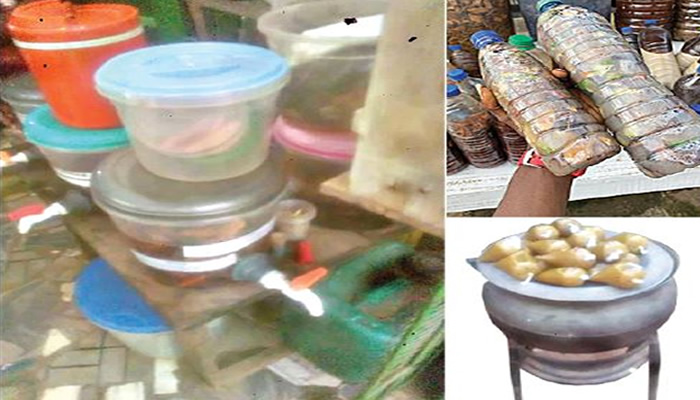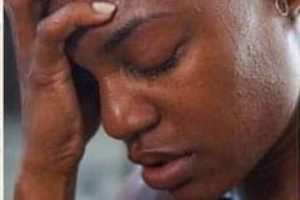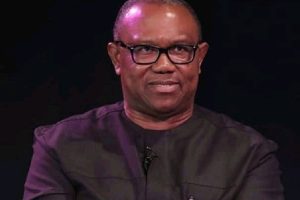
VICTOR AYENI writes about how traditional medicine is enjoying growing patronage in light of the skyrocketing prices of orthodox drugs in the country and the immense potential of research that lies in alternative medicine
In the busy Sango Ota market, in the Ado-Odo/Ota Local Government Area of Ogun State, Mrs Ayoni Oladipo graciously showcased her array of herbal products. Across the wooden table in front of her shop were plastic bottles of different shapes labelled according to the ailments they were prepared to cure.
Weekly, clients from the area and other towns and cities visited the shop of the Osogbo indigene whose knowledge of herbal concoctions she admitted was learnt from her mother.
The 41-year-old woman was in a cheery mood when Saturday PUNCH visited her shop on Tuesday morning and asked for herbal mixtures to treat diarrhoea and malaria.
“I get much patronage and I have clients even outside Ogun State. People come to me from Lagos, Ibadan, and even Abuja. They contact me for a variety of reasons and request herbs to cure diarrhoea, back pains, and general body weakness,” Oladipo said with a genuine grin that evinced happiness and sincerity.
When our correspondent expressed some scepticism about the efficacy of herbal products, Oladipo gave some instances to accentuate the potency of her herbal preparations.
She explained, “Just recently, they called me to help a white man around here whom we call ‘Baba Mighty.’ He works in a company not too far from here but he came down with a stroke.
“His condition was made worse when he fell to the ground while at work and his colleagues were watching him like a pack of fowls. I took care of this man with my herbs and he is better now.
“Unfortunately, his people didn’t deliver all of my money to me, they kept part of it because they had thought herbal medicine would be as expensive as orthodox medicine.”
Not sure our correspondent was convinced, she continued, “There was a lady whose menses stopped and her husband came and confided in me when he saw some people buying some herbs from me. The couple had gone to Lagos University Teaching Hospital, Federal Medical Centre, and another medical facility but nothing changed.
“So, I gave him a half bottle of herbs from the shop for his wife. When his wife started seeing her menses again, he returned here to thank me. The lady later conceived and gave birth to twins. I also sell herbal preparations that cure weak erections or impotence.
“I often mix atori odo (Tiliaceae) with alligator pepper and instruct the man to take the mixture. It will awaken his erection, except if it is a spiritual attack, and that is beyond what I cure.”
The prices of the herbs sold by Oladipo ranged between N3,000 to N5,000, a development she blamed on economic inflation.
“For now, things are generally expensive so the prices of my herbs range from N3,000 to N5,000. Those herbs in bigger plastic bottles are N5,000,” she said, pointing at some bottles in a corner of her shop.
“They are so efficacious that you can’t even finish their content before the condition goes away. I now enjoy better patronage because people have realised that herbal medicine is cheaper than Western medicine.
“Another advantage is that herbs don’t expire. One of the reasons it doesn’t work for some people is when roots are used in place of tree bark during preparation. When people are advised to use local eggs, they use eggs from layers instead; there’s no way such a herb will work,” she added.
Like Oladipo, another herb seller in Ofada, in the Obafemi Owode Local Government Area of Ogun State, Mrs Kemisola Banwo, said that despite the negativity that traditional medicine used to evoke among the populace, it had gained a more positive image in recent times.
“Gone are those days when people spoke ill of our trade as it used to be. Now, we have educated people who patronise us.
“This is not a joke, you can ask anyone who sells herbs, people from all walks of life to troop to us when they need a cure.
“Our industry is now acceptable and even the government recognises our effort. We aim to heal people, we are not sorcerers or fetish people. We make use of the plants and roots that God has given us to treat illnesses just as the whites have done. People now see this,” Banwo averred.
An increasing number of Nigerians are turning to herbal medicines and alternative therapies with the rise in prices of modern drugs, some of which are imported.
Popularly known among the Yoruba as ‘elewe omo,’ traditional healers are known to sell plant-based herbs to clients to cure a wide range of illnesses that affect infants, children, and adults.
According to data from the International Drug Centre, drug prices are set to remain high in 2024 as import prices of pharmaceutical products may hit over N900bn due to the depreciation of the naira.
This has been said to further mount pressure on Nigerians who grappled with high drug prices in 2023 since the country imports most of its pharmaceutical products from India, China, Malaysia, Netherlands, and Belgium.
In August 2023, a pharmaceutical company, GlaxoSmithKline Consumer Nigeria Plc, disclosed intentions to cease its operations within the country and shift towards employing a third-party direct distribution model for its pharmaceutical products.
Three months after GSK made the announcement, a French pharmaceutical multinational, Sanofi, also announced its plans to exit and adopt a third-party distribution model in the country. It stated that its third-party distributor would begin to handle its commercial portfolio of medicines in February 2024.
Since then, according to SBM Intelligence, the cost of drugs has surged above 100 per cent in sync with Nigeria’s biting inflation and foreign exchange crisis which have put a strain on businesses and consumers, including the pharmaceutical industry.
Consequently, more citizens have found themselves seeking solace in the curative powers of traditional herbs which they consider to be more accessible and cheaper than orthodox medicine.
An Ibadan-based chef, Taiwo Divine, in a chat with our correspondent, admitted that he now relies fully on herbal concoctions which he said meet his family’s health needs.
“Whenever people tell me that herbs don’t work, I always point out to them that orthodox medicines also do not always work. I once had malaria and took an anti-malaria tablet, yet I felt no relief until I took a herb prepared for me by a family friend to treat fever and it worked.
“Now, if you want to treat malaria, you will spend about N3,000 whereas it used to be N1,400 a few years ago. This is not sustainable at any level, so I would prefer to take traditional medicine than waste money on Western medicine that might not even work for me,” Divine stated.
Expressing the same sentiment, a marketer at a Lagos-based firm, Treasure Etteh, said the hike in the cost of modern medicine had made him embrace herbs.
He noted, “I now take herbs whenever I feel symptoms of illness. I don’t like taking injections and with the price of drugs now, it’s not affordable. How much is my salary that I’d be spending so much on medications?
“I have a trusted herb seller around here that I patronise because I am not used to taking it initially; I’m adjusting to it. The seller often mixes some of the herbs with soft drinks to make them more palatable for me.”
An unexplored market
Although Nigeria is known to have a diverse array of natural herbs and plants, experts have stated that the country has yet to properly harness the potential of its traditional and complementary medicine, which has been estimated to be a lucrative market worth billions of dollars.
A report by Future Market Insight, disclosed that the traditional medicine market is dominated by China, India, the United States, Germany, and Thailand, among others.
The market has been projected to reach $199.07bn in 2023 and $417.99bn by 2033, and is growing at a compound annual growth rate of 7.7 per cent, according to the FMI report.
It added that South Asia could become the third most profitable market for traditional medicine by 2031, with India accounting for more than 74 per cent of the market.
According to the World Health Organisation, herbal medicine is used by about 60 per cent of the world’s population for primary health care, and about 80 per cent of Africans seek solace in traditional medicines for their fundamental health needs.
The international agency, however, noted that the research, local manufacturing, and commercialisation potential of traditional medicine, remain untapped, especially in developing countries like Nigeria.
A study conducted in Lagos in 2019 and published in the Journal of Family Medicine and Primary Care showed that until recently, many Nigerians often co-utilised herbal medicines with orthodox medicine, with a majority indicating a preference for the latter.
A trader, Emmanuel Ibekwe, who sells Chinese herbal mixtures from his shop in the Lagos Island axis of Lagos State, told our correspondent that his customer base had increased over months due to the economic condition of the country.
“More people are asking for these products even though they are more expensive than the local herbs, but then I think our government can also invest in local herbal medicine the same way the Chinese have done.
“They are exporting their products and selling them here (in Nigeria). There is a woman who sells herbs around me, she is also enjoys patronage, but what differs is the packaging.
“The Chinese ones are more tailored towards educated people and they have a kind of appeal the local ones don’t have. I think our leaders should also be looking at how they can tap into this thriving venture,” Ibekwe added.
A blogger, Editi Peter, who described her mother as an herbalist, also pointed out the economic and health potential inherent in herbal medicine.
She said, “The ingredients my mother uses are 100 per cent herbal which I can’t disclose entirely. My mum uses seeds to prepare her herbs and they are water-based. She uses her herbs to cure different kinds of diseases and infections.
“There are many diseases that Western medicines can’t cure such as a stroke, hepatitis, diabetes, Herpes Simplex Virus, Human Papillomavirus, and gonorrhoea. My mother has been using herbs to save lives since the 1990s.
“This is an area that the country needs to patronise well to attain wellness and complement Western medicine.”
A medical doctor and Chief Executive Officer of Lifebox Labs, Dr Olusina Ajidahun, in an interview with Sunday PUNCH, explained that with the skyrocketing prices of drugs and poverty in the country, many patients are unable to afford orthodox medicines.
He stated, “Some medicines that used to cost N5,000 or N8,000 have even gone up to N40,000. Essential medical supplies like asthmatic inhalers, and antibiotics, among many, have also gone up.
“It’s so bad that when patients come to the hospital, a lot of them can’t afford these drugs because there is huge poverty in the land, so many people turn to unorthodox medicine.
“Unorthodox medicines are very cheap, affordable, and everywhere, but, unfortunately, patients don’t follow up their treatment by coming to the hospital. We cannot deny that more people are beginning to embrace herbs; it’s something we can’t stop.
“The big question is: are herbs in their entirety dangerous? The answer to that is no. A lot of drugs are plant-based even if some are synthesised in laboratories, so herbs have a potential benefit for therapy and treating diseases.”





